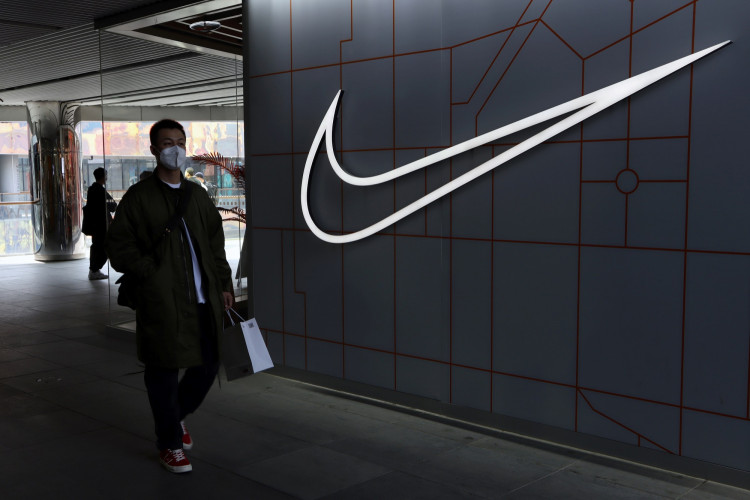Nike Inc. (NYSE: NKE) faced significant market volatility following the release of its fourth-quarter earnings, with shares plunging over 12% in after-hours trading on Thursday. Despite being the top sponsor at the UEFA Euro 2024 football tournament, Nike's recent performance has failed to impress investors, highlighting ongoing challenges within the company.
The company reported a revenue decrease of 2% for the quarter ending May 31, with total revenue amounting to $12.61 billion. Nike's direct-to-consumer sales fell 8% year-over-year to $5.1 billion, while wholesale revenues increased by 5% to $7.1 billion. The sportswear giant is also grappling with weakening demand in international markets, including China.
In response to the disappointing results, Nike lowered its full-year sales outlook, causing ripples across the market. Retail partners such as Foot Locker (NYSE: FL) and Dick's Sporting Goods (NYSE: DKS) saw their stocks rattled as well. Despite the upcoming Olympics, which Nike hopes will boost sales, the company is bracing for a challenging fiscal 2025.
Nike CEO John Donahoe, who took the helm in January 2020, is under fire from Wall Street. The company warned of a 10% sales decline in the current quarter, significantly worse than the 3.2% drop projected by LSEG. Nike also expects fiscal 2025 sales to decline by mid-single digits, a stark contrast to previous growth expectations.
As investors digested the bleak outlook, at least six investment banks downgraded Nike's stock. Analysts at Morgan Stanley and Stifel went further, questioning the company's management. "Management credibility is severely challenged and potential for C-level regime change adds further uncertainty," wrote Stifel analyst Jim Duffy.
Under Donahoe's leadership, Nike's stock has fallen approximately 25%, significantly underperforming both the S&P 500 and the retail-focused ETF, XRT, which have seen gains of around 69% and 67%, respectively. Nike finance chief Matt Friend attributed the guidance cut to factors such as softness in China and foreign exchange headwinds, but also pointed to internal challenges created under Donahoe's tenure.
Nike's strategy of shifting away from wholesale partners like Foot Locker and Dick's Sporting Goods in favor of direct sales through its own stores and website has backfired. The company is now working to restore those relationships while introducing new product lines. Foot Locker has expressed optimism about Nike's upcoming product launches, noting that the brand is "back to playing offense."
However, loyal customers have shown decreasing interest in Nike's core franchises, such as Air Force 1s, Air Jordan 1s, and Dunks. Critics argue that Nike's focus on these lines has stifled innovation, allowing competitors like On Running and Hoka to capture market share. Jessica Ramírez, senior research analyst at Jane Hali & Associates, emphasized the need for management change at Nike. "Post-lockdown, we saw that the consumer did adopt running and was serious about that and there was an everyday runner, and Nike didn't really respond to that," she told CNBC.
Kevin McCarthy, senior research analyst at Neuberger Berman, echoed this sentiment, suggesting that a change in leadership is necessary. "Everything that you've suggested is wrong with this company seems to flow back to execution, management and everything else," McCarthy said on CNBC's "Closing Bell."
Despite these criticisms, Nike's founder and chairman emeritus, Phil Knight, has expressed confidence in Donahoe's leadership. "I have seen Nike's plans for the future and wholeheartedly believe in them," Knight told CNBC. "I am optimistic in Nike's future and John Donahoe has my unwavering confidence and full support."
While Nike's stock performance under Donahoe has been disappointing, the company's annual sales have grown from $37.4 billion in fiscal 2020 to $51.36 billion in fiscal 2024. Nevertheless, the recent quarter highlighted the numerous challenges facing the brand, from weakening international demand to the need for renewed innovation.





